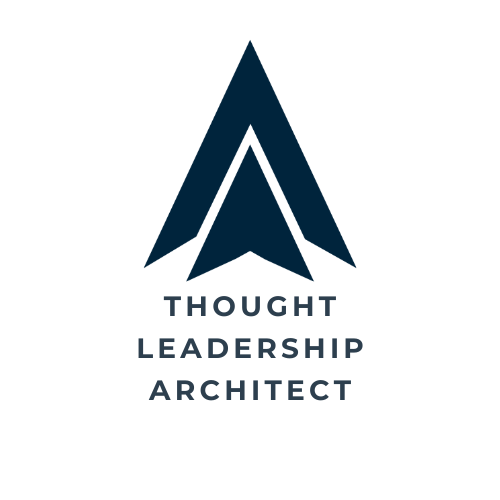In the rush to automate, optimize, and disrupt, today’s leaders face an ethical dilemma: how do we innovate responsibly in a world increasingly driven by artificial intelligence?
The answer, surprisingly, may lie in Rome.
In February 2020, the Pontifical Academy for Life—a Vatican body dedicated to promoting human dignity in healthcare and science—launched the Rome Call for AI Ethics, a declaration that proposes a bold vision for artificial intelligence rooted in Catholic social teaching1. Major tech companies like IBM, Microsoft, and later leaders of the Jewish and Muslim faiths joined the call, signaling a rare and powerful moment of cross-sector, cross-faith alignment on the future of technology.
But this isn’t just about religion. The Rome Call’s principles offer a practical framework for ethical leadership and innovation—one that forward-thinking executives, founders, and policymakers would do well to embrace.
Let’s explore how.

🧭 1. Human-Centered Leadership Begins with Dignity
The first principle of the Rome Call is Human Dignity: AI must be designed to serve—not replace—the human person.
“Technology is not neutral… It must serve human beings, not the other way around.”
— Pope Francis, address on AI and ethics2
In leadership, this translates into people-first innovation. Whether you’re building a product, a team, or a brand, dignity-centered decision-making leads to trust, loyalty, and sustainable growth. It means designing policies and platforms that prioritize user rights, employee autonomy, and customer well-being—not just shareholder returns.

🔍 2. Transparency is the New Trust Currency
The Rome Call calls for Transparency in AI systems—meaning users should be able to understand how decisions are made.
In a business context, this aligns perfectly with the emerging demand for ethical transparency in leadership: how decisions are made, how data is used, and how power is held. In a world of black-box algorithms, clear communication becomes a leadership asset.
Leaders who demystify complexity and lead with clarity will always outlast those who hide behind jargon and code.
🌍 3. Inclusion Isn’t an Option—It’s an Obligation
Another principle of the Rome Call is Inclusion—ensuring AI systems are designed to benefit all people equally.
This isn’t just moral—it’s strategic. Inclusive design leads to broader markets, better problem-solving, and stronger teams. For innovators, it’s a reminder that the best ideas emerge when diverse perspectives are honored.
“Ethics in AI cannot be a niche concern. It must be embedded in the innovation lifecycle from the start.”
— Brad Smith, President, Microsoft3
True thought leadership demands that we design for equity, not just efficiency.

⚖️ 4. Accountability Must Be Built Into the System
The Rome Call’s Responsibility principle emphasizes that developers and users must be accountable for the consequences of AI use.
For leaders, this goes beyond tech. It speaks to a culture of ownership—not just assigning blame when something goes wrong, but embedding ethical foresight into your strategic planning.
In leadership and in code, responsibility isn’t about perfection. It’s about integrity.
💡 5. Impartiality Is the Antidote to Bias
AI is only as fair as the data it’s trained on—and the people who shape it. The Rome Call’s Impartiality principle warns against perpetuating bias through automated systems.
Likewise, leaders must audit their own systems—HR policies, algorithms, marketing strategies—for hidden inequities. Innovation without impartiality is just accelerated injustice.
Ethical innovation requires intention—and often, intervention.
🔐 6. Security and Privacy: Sacred in Both Faith and Business
Last but not least, the Rome Call affirms the importance of security and privacy—treating user data as a human right, not a commodity.
For modern organizations, this means putting ethical data stewardship at the heart of digital strategy. Privacy isn’t just a compliance checkbox. It’s a form of trust—sacred in both the theological and leadership sense.

✨ A Catholic Framework, A Universal Opportunity
While the Rome Call is rooted in Catholic ethical tradition, its principles resonate across cultures, industries, and belief systems. In fact, its core message may be more relevant now than ever:
Technology must not outpace our humanity.
For leaders navigating the future of AI, this is both a caution and a compass. It invites us to slow down, ask better questions, and design futures that are not only smarter—but more just, transparent, and human.
And that, friends, is good leadership strategy.
Footnotes
- Pontifical Academy for Life. (2020). Rome Call for AI Ethics. Retrieved from https://www.romecall.org ↩
- Pope Francis. (2020). Remarks on AI and Human Dignity. Vatican News. ↩
- Brad Smith. (2020). Microsoft Official Blog. Remarks at the signing of the Rome Call for AI Ethics. ↩
#EthicalAI #ThoughtLeadership #CatholicEthics #HumanCenteredDesign #ResponsibleInnovation #FaithAndTech #AIForGood #RomeCall #LeadershipWithIntegrity #TechForHumans #TheologyOfInnovation #ThoughtLeadershipArchitect #PopeFrancis #FrChrisAlar



Leave a Reply